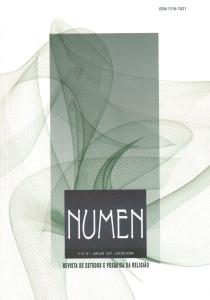Kierkegaard: filósofo de la religión poshegeliano / Kierkegaard: Pos-hegelian Philosopher of Religion
Resumo
Resumen
Kierkegaard se entendió a sí mismo como un pensador y escritor religioso, llamado a refundar el cristianismo, más allá de la iglesia oficial y sus 1800 años de historia. El pensamiento religioso de Kierkegaard es inseparable del contexto especulativo pos-hegeliano en el cual se mueve y del cual asume el principio filosófico, a partir del cual reelaborar su concepto de fe, a saber, el principio de la subjetividad absoluta. Entre la derecha y la izquierda de Hegel, Kierkegaard propondrá una nueva concepción religiosa, que sigue alimentando la filosofía contemporánea.
Palabras clave: Subjetividad; autoconciencia; reflexión; relación; inmanencia; trascendencia.
Abstract
Kierkegaard understood himself as a religious thinker and author, called to refound Christianity, beyond the official Church and its 1800 years of history. The religious thought of Kierkegaard is inseparable of the speculative pos-hegelian context, in which it moves, and assumes the philosophical principle, through which elaborate its concept of faith, that is, the principle of the absolute subjectivity. Between the right and the left of Hegel, Kierkegaard proposes a new religious comprehension, what still feeds the contemporary philosophy.
Keywords: Subjectivity; self-consciousness; reflection; relationship; immanence; transcendence
Downloads
Downloads
Publicado
Como Citar
Edição
Seção
Licença
- O envio de artigo implica automaticamente a cessão dos direitos autorais à Numen, que não se obriga a devolver os originais das colaborações examinadas e revisadas. Numen reserva-se todos os direitos autorais dos artigos publicados, inclusive artigos traduzidos, contudo, mediante solicitação, pode autorizar sua posterior reprodução desde que citada a fonte. Pela cessão do direito autoral, os autores e as autoras recebem dois exemplares; autores e autoras de resenhas recebem um exemplar do respectivo número.
- Artigos que não seguirem as normas formais de apresentação aqui especificadas serão devolvidos para posterior adequação pelos seus autores.
- Os artigos publicados na Numen são de total responsabilidade dos respectivos autores e autoras.
- O envio de artigo implica automaticamente a cessão dos direitos autorais à Numen, que não se obriga a devolver os originais das colaborações examinadas e revisadas. Numen reserva-se todos os direitos autorais dos artigos publicados, inclusive artigos traduzidos, contudo, mediante solicitação, pode autorizar sua posterior reprodução desde que citada a fonte. Pela cessão do direito autoral, os autores e as autoras recebem dois exemplares; autores e autoras de resenhas recebem um exemplar do respectivo número.
- Artigos não enquadrados nas normas de apresentação especificadas serão devolvidos para posterior adequação pelos seus autores e autoras.
- Os artigos publicados na Numen, no que diz respeito ao conteúdo, correção lingüística e estilo, são de total responsabilidade dos respectivos autores e autoras.







